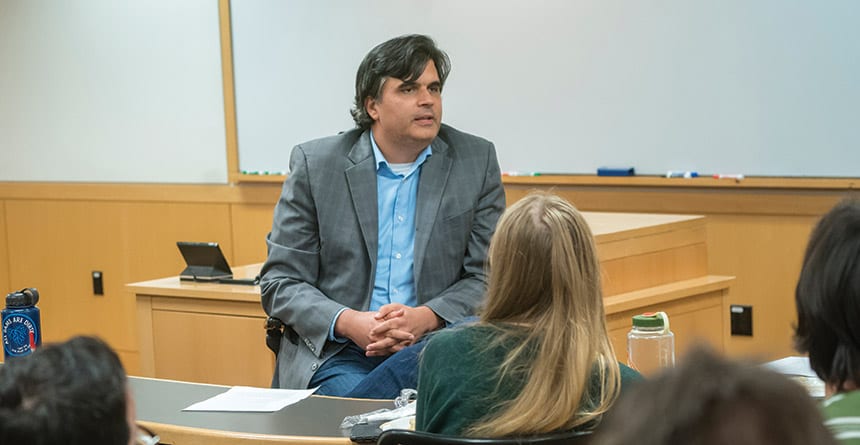
Professor Seth Davis’s work is steeped in federal Indian law. His scholarship integrates such related fields as federal litigation, property law, fiduciary law, and administrative law. The list of disciplines is endless, much like his passion for teaching and mentoring Berkeley Law’s Native student community.
“My hope is that we can work with students to build strong Native American groups at the law school and across campus, so that when they return in 10 or even 20 years, they’ll find a vibrant community to support and mentor,” Davis says.
One of his goals is to help expand the curriculum and programming around federal Indian law and Indian Country issues. A new generation of lawyers schooled in these areas will be essential as Native Nations continue developing their own governments and legal frameworks.
“Native lawyers have a crucial role to play in tribal self-determination and the development of tribal law,” Davis says. “This means building court systems, legal systems, health services, and more.”
Davis hopes the law school and UC Berkeley as a whole continue to increase their engagement with California’s tribal communities. He commends recent efforts to do just that, citing the 2017 California Indian Tribal Forum in which Chancellor Carol Christ participated.
“California has over 100 federally recognized Native Nations, as well as many that aren’t federally recognized. Cities such as Oakland and Los Angeles have large urban Indian communities. There’s so much Indian Country and so many indigenous peoples in California that public law schools have an obligation to work with them,” Davis says.
Berkeley Law’s newly revived Native American Law Students Association (NALSA) lobbied for and won the right to host the 28th National NALSA Moot Court Competition in February. Davis, who mentors the student group, is writing the case for the competition.
A prolific writer of leading law review articles and a co-author of supplements to Cohen’s Handbook of Federal Indian Law, among other writings, Davis is deeply committed to students and federal Indian law scholarship. In turn, he follows the trailblazing work of former Berkeley Law Professor Philip Frickey.
Considered the nation’s leading authority in the field, Frickey died in 2010. Davis’ work promises to cement Frickey’s legacy and build an even greater trove of federal Indian legal scholarship.
—Susan Gluss